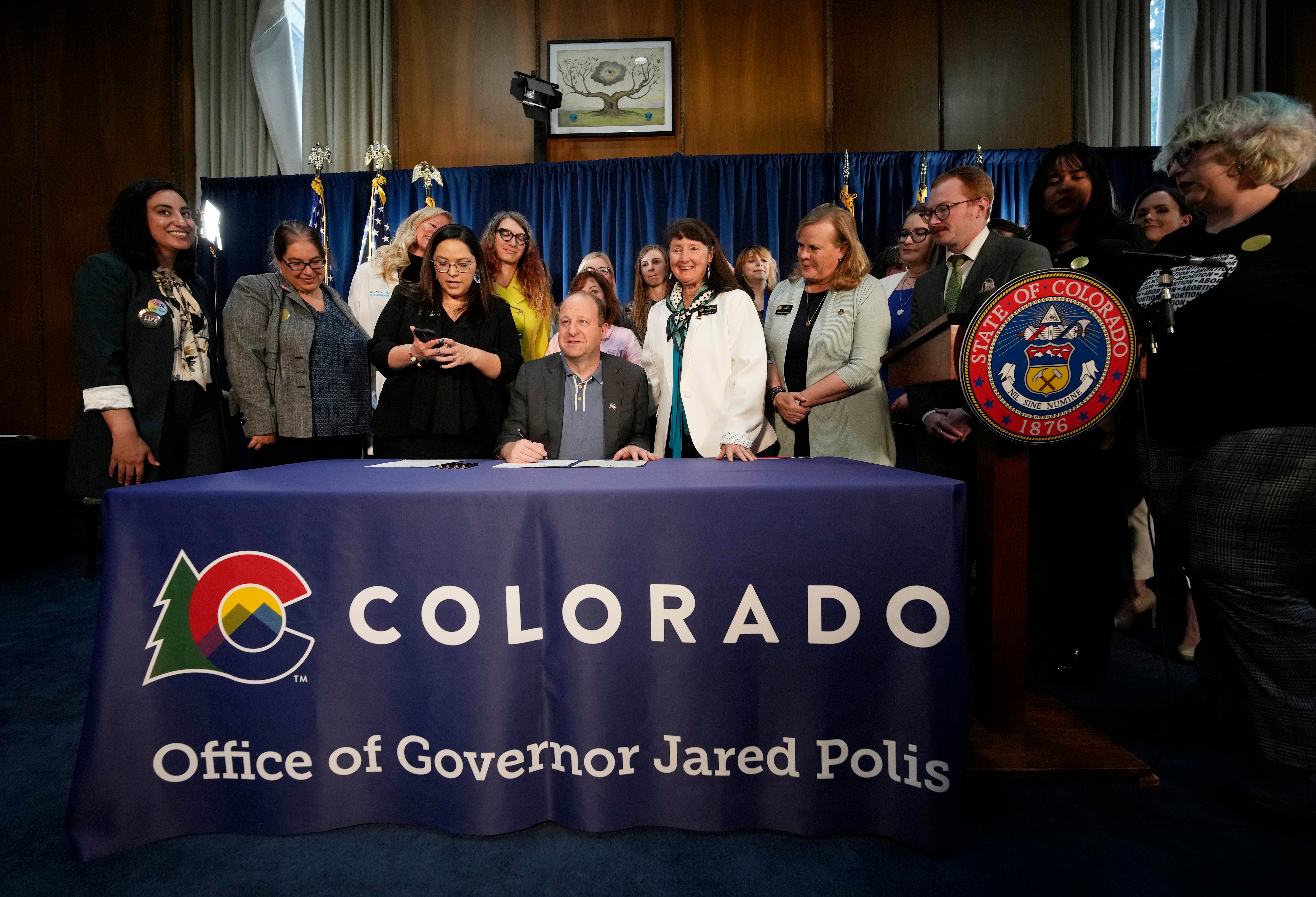Colorado says it won't enforce 'abortion reversal' ban
Colorado is promising not to enforce its new ban on unproven treatments to reverse medication abortions until state regulators go through a process to determine if they should be allowed

Your support helps us to tell the story
From reproductive rights to climate change to Big Tech, The Independent is on the ground when the story is developing. Whether it's investigating the financials of Elon Musk's pro-Trump PAC or producing our latest documentary, 'The A Word', which shines a light on the American women fighting for reproductive rights, we know how important it is to parse out the facts from the messaging.
At such a critical moment in US history, we need reporters on the ground. Your donation allows us to keep sending journalists to speak to both sides of the story.
The Independent is trusted by Americans across the entire political spectrum. And unlike many other quality news outlets, we choose not to lock Americans out of our reporting and analysis with paywalls. We believe quality journalism should be available to everyone, paid for by those who can afford it.
Your support makes all the difference.Colorado is promising not to enforce its new ban on unproven treatments to reverse medication abortions until state regulators go through a process to determine if they should be allowed.
The move came in response to a lawsuit filed by a Catholic clinic challenging the ban when it was signed into law last week along with two other bills aimed at making Colorado a safe haven for abortion as well as gender-affirming procedures and medications.
Hours after the bill signing, a federal judge temporarily blocked the state from enforcing the ban against Bella Health and Wellness, which said it had a patient whose current treatment would be interrupted if the new law was enforced. It claims the ban violates their First Amendment right to free speech and religious exercise.
In court filings Thursday responding to U.S. District Daniel Domenico's temporary restraining order, Colorado Attorney General Phil Weiser revealed that the state's medical and nursing boards had met behind closed doors this week and voted not to enforce the ban until they conduct a rulemaking process on the treatments. That will not be completed until September, he said. In the meantime, Bella Health will not face any enforcement of the ban and therefore does not have grounds to challenge the law, he said.
Domenico is scheduled to hold a hearing Monday to consider whether he should extend the ban on enforcement of the law against the clinic, Bella Health & Wellness.
Rebekah Ricketts, an attorney at The Becket Fund for Religious Liberty representing the clinic, said Friday it and the women it serves need protection from the law, which she said was unconstitutional.
“The Attorney General is now running scared because the Colorado legislature decided to shoot first and ask questions later,” Ricketts said in a statement.
The law was signed by Democratic Gov. Jared Polis on April 14. It says health care workers who provide “medication abortion reversal treatments” would be engaging in unprofessional conduct and could be disciplined for providing them unless regulators pass rules saying that they are “generally accepted standard of practice.” It gave the medical, nursing and pharmacy boards until Oct. 1 to enact rules on it.
Bella Health gives doses of the hormone progesterone to women who have taken the abortion pill mifepristone, which inhibits progesterone, and decide not to continue the abortion process by taking a second drug, misoprostol.
Doctors use progesterone to try to prevent miscarriages. However, the American College of Obstetricians and Gynecologists says using it to try to reverse medication abortions is “unproven and unethical.”
About a dozen states have passed laws compelling abortion providers to tell their patients about the treatments. However, according to the Guttmacher Institute, Colorado is the only state that has banned them.